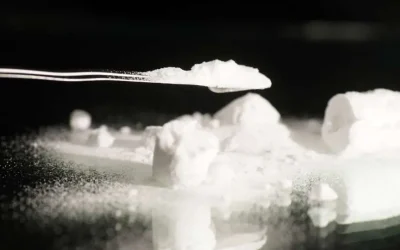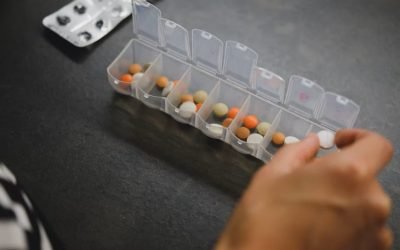How Specialised Rehab Programs in Spain Help Overcome MDMA Addiction
In this article, we explain how specialised Rehab Programs in Spain can help overcome MDMA Addiction. Hacienda Paradiso is an expert clinic in treating drug addiction problems. We are located in Málaga, Spain.
MDMA addiction affects thousands of lives worldwide, yet many people struggle to find effective treatment options that address both the physical and psychological aspects of dependency.
We understand that overcoming drug addiction requires more than just willpower – it demands a comprehensive approach that combines proven medical treatments with supportive therapy. This is why specialised rehabilitation programs in Spain have emerged as leading solutions for addiction mental health treatment, offering unique advantages that set them apart from conventional recovery methods.
In this comprehensive guide, we’ll explore how Spanish rehabilitation centers combine evidence-based treatments, Mediterranean wellness practices, and personalized therapy programs to create effective recovery pathways for MDMA addiction. We’ll also examine why the Spanish environment provides ideal conditions for healing and long-term recovery success.

Understanding MDMA Addiction’s Unique Challenges
We need to understand the unique challenges of MDMA addiction to provide effective treatment. Let’s explore how this drug affects the brain and behavior in ways that make recovery particularly complex.
Neurological effects of MDMA abuse
MDMA powerfully impacts our brain’s chemistry by triggering the release of multiple neurotransmitters. The drug primarily affects serotonin, dopamine, and norepinephrine systems, creating both immediate and long-term changes in brain function. What makes MDMA particularly concerning is its ability to cause lasting decreases in serotonin uptake sites, with the extent of damage directly correlating to previous exposure levels.
We’ve observed that chronic MDMA use leads to several neurological changes:
- Decreased serotonin transporter density in various brain regions
- Impaired verbal and visual memory function
- Altered emotional processing and mood regulation
- Reduced cognitive performance and reasoning abilities
Physical and psychological dependency patterns
While MDMA isn’t as physically addictive as some other substances, we’ve found that psychological dependence can develop rapidly. The drug creates a complex pattern of dependency, where users may become psychologically reliant on it as a form of self-medication for underlying issues.
What makes MDMA addiction particularly challenging is its impact on both physical and mental health. Studies show that heavy MDMA use can lead to long-lasting effects on serotonin production, affecting everything from emotional regulation to memory function.
Club culture and social pressures
Our research reveals fascinating patterns in the social context of MDMA use. The drug’s popularity is closely tied to specific music preferences and venues, with dance music enthusiasts being 2.5 times more likely to use illegal drugs. We’ve found that eight out of ten goa party attendees reported using illegal drugs during the past year.
The age demographics are particularly striking, with most users being young adults between 16-25 years old. What’s especially noteworthy is the gender distribution in these settings, where the ratio of men to women rarely exceeds 60/40. This social environment creates unique challenges for treatment, as the drug use is often deeply intertwined with social identity and lifestyle choices.
Understanding these complex interactions between neurological effects, dependency patterns, and social pressures helps us develop more effective treatment approaches. These insights guide our specialised rehabilitation programs in addressing both the biological and social aspects of MDMA addiction.
Spain’s Innovative MDMA Treatment Protocols
Spanish rehabilitation centers have pioneered innovative approaches to treating MDMA addiction, combining traditional methods with cutting-edge protocols. We’ve developed comprehensive treatment programs that address both the physical and psychological aspects of recovery.
Evidence-based therapeutic approaches
Our treatment centers incorporate multiple evidence-based modalities that work together to support recovery. We utilize a combination of proven therapies including:
- Cognitive Behavioral Therapy (CBT) for identifying and modifying addiction-related thoughts
- Dialectical Behavior Therapy (DBT) for emotional regulation
- Motivational interviewing for building internal motivation
- Contingency management for positive behavioral reinforcement
These therapeutic approaches are delivered by highly trained professionals who follow international standards, ensuring both efficiency and safety throughout the treatment process.
Specialised medication-assisted treatment
We begin with a carefully monitored detoxification process, which forms the foundation of our treatment protocol. During this crucial phase, our medical team provides appropriate medication support to manage withdrawal symptoms safely and comfortably.
Our medication-assisted treatment includes antidepressant support when needed, particularly to address the depressive symptoms that often emerge during early recovery. The length and intensity of medication support are tailored based on individual usage patterns and concurrent substance use history.

Integration of Spanish wellness practices
What sets our approach apart is the integration of Spanish wellness practices into traditional treatment methods. We emphasize holistic healing through:
Our programs combine mind-body practices like mindfulness meditation, yoga, and sound healing with conventional therapy. These interventions help reduce stress, enhance self-awareness, and provide alternative coping mechanisms.
The Spanish approach to wellness emphasises the interconnectedness of physical, psychological, and social healing. We’ve found that this comprehensive strategy creates a more sustainable foundation for long-term recovery, addressing not just the addiction itself but the whole person.
By incorporating these diverse therapeutic techniques and holistic methods, our treatment centers provide thorough care and support throughout the recovery process. This integrated approach has proven particularly effective in addressing the complex challenges of MDMA addiction while promoting lasting healing.
Comprehensive Recovery Through Mediterranean Healing
The healing power of Spain’s Mediterranean environment plays a vital role in recovery from addiction mental health challenges. Our unique approach combines natural elements with structured treatment to create an optimal healing environment.
Climate benefits for recovery
Spain’s exceptional climate, with over 300 days of annual sunshine, provides natural support for the healing process. We’ve found that this abundant sunshine exposure naturally boosts vitamin D levels, which helps improve mood and overall outlook during recovery. The mild year-round temperatures create perfect conditions for outdoor therapeutic activities, while the combination of beautiful beaches and mountain landscapes offers diverse settings for healing.
These outdoor activities do more than just provide exercise – they help clients develop lasting coping skills and build a more balanced lifestyle. We’ve seen how wilderness therapy helps people overcome perceived limitations while developing enhanced self-worth. The natural environment makes it easier for clients to open up during therapy sessions, leading to improved self-esteem and stronger social skills.
Nutritional rehabilitation approaches
Our nutritional approach draws from the traditional Mediterranean diet, which has proven benefits for both physical and mental health. We understand that addiction and healthy eating rarely go hand-in-hand, and many clients arrive at our facility lacking proper nutrition.
We focus on key dietary elements that support recovery:
- Extra virgin olive oil for healthy fats
- Abundant fresh fruits and vegetables
- Whole grains for sustained energy
- Regular seafood consumption
- Reduced sugar intake
Our expert nutritionists create personalized meal plans that match each client’s healing needs, helping to restore strength and vitality. This nutritional rehabilitation serves as both immediate support during treatment and a foundation for long-term health after returning home.
The combination of climate benefits, outdoor activities, and proper nutrition creates a powerful healing environment. This comprehensive approach addresses not just the physical aspects of recovery, but also supports emotional and psychological healing through natural means.
Personalised Therapy Programs for MDMA Recovery
In our specialised rehabilitation centers, we’ve developed personalised therapy programs that address the unique challenges of MDMA addiction mental health treatment. Our approach combines multiple therapeutic modalities to create comprehensive healing pathways for each individual.
Individual counseling techniques
We implement evidence-based behavioral therapy approaches, with Cognitive Behavioral Therapy (CBT) serving as a cornerstone of our treatment program. Our data shows that CBT helps individuals identify and modify thoughts, emotions, and behaviors that led to MDMA misuse. Through one-on-one sessions, we help clients develop crucial coping skills and stress management techniques.
Our counseling program includes Dialectical Behavior Therapy (DBT) which has proven particularly effective in helping regulate emotions and manage stress without turning to substances. We’ve found that this combination of therapeutic approaches provides our clients with a robust foundation for recovery.
Group therapy dynamics
Our group therapy sessions create powerful healing environments where individuals share experiences and support each other’s recovery journeys. Research shows that group counseling emphasizes the power of camaraderie and understanding in overcoming addiction. We’ve structured our groups to maximize peer support while maintaining professional guidance.
The benefits our clients experience in group therapy include:
- Shared learning from others’ experiences
- Development of communication skills
- Building of trust and social connections
- Practice of new coping strategies in a safe environment
Family involvement strategies
We recognize that family support plays a crucial role in successful recovery. Studies have shown that family-based treatment has accumulated the largest evidence base compared to all other approaches for substance use disorders. Our family therapy programs focus on:
Communication Enhancement: We teach families effective ways to support recovery while maintaining healthy boundaries. Our approach helps resolve conflicts and improve communication between family members affected by substance use.
Recovery Capital Building: We work with families to create strong support networks that extend beyond the treatment period. Research indicates that family involvement can be calibrated to meet the unique developmental needs of each individual.
Through our comprehensive therapy program, we’ve created a treatment approach that addresses both individual needs and group dynamics while strengthening family support systems. This multi-faceted strategy has proven particularly effective in supporting long-term recovery from MDMA addiction.
Building a Sustainable Recovery Foundation
At the heart of successful long-term recovery lies a strong foundation built on proven strategies and support systems. We’ve seen firsthand how implementing the right combination of tools and techniques can make a crucial difference in maintaining sobriety.
Relapse prevention strategies
We understand that relapse prevention skills are essential for living a fulfilling life in recovery. Our experience shows that these skills need to become part of your daily routine to effectively prevent or reduce the risk of cravings. Here are the key strategies we recommend:
- Regular participation in support groups like NA or AA
- Creating a list of healthy contacts for immediate support
- Developing personalized coping mechanisms
- Implementing daily stress management routines
- Maintaining open communication with support networks
We’ve found that individuals who actively participate in peer support groups show significantly higher rates of long-term recovery success. Our approach emphasizes the importance of having multiple prevention tools readily available when facing challenges.
Life skills development
We focus on building practical life skills that support your recovery journey. Our program helps you develop essential capabilities that extend far beyond basic sobriety maintenance. Accountability becomes a cornerstone of your recovery as you learn to take responsibility for your actions and choices.
Through our structured approach, we help you master crucial areas including:
- Stress management techniques
- Healthy coping mechanisms
- Time management skills
- Financial responsibility
- Emotional regulation
Support network creation
We believe that building a robust support system is crucial for long-term success. Our experience shows that recovery thrives when you have access to both professional and community support. We help you create a multi-layered support network that includes:
Professional SupportWe provide access to addiction counselors and mental health professionals who are available 24/7. This ensures you always have professional guidance when needed.
Community ConnectionWe facilitate connections with support groups in multiple languages and help you build relationships with others who understand your journey. Our alumni network provides lifetime membership, offering ongoing support and mentorship opportunities.
Family IntegrationWe recognize that family involvement is crucial for preventing relapse. Through our specialized support groups and education programs, we help your family members understand the recovery process better, enabling them to provide more effective support.
By implementing these strategies and building strong support networks, we’ve seen remarkable success in helping individuals maintain their recovery. Our approach emphasizes practical skills and real-world applications, ensuring you’re well-equipped to handle challenges as they arise. Remember, maintaining open communication with your support network and practicing self-care are essential components of your ongoing recovery journey.
Conclusion
Our experience with specialised MDMA rehabilitation programs in Spain has shown remarkable success through a comprehensive approach that addresses both physical and psychological aspects of recovery. We’ve witnessed how the combination of evidence-based treatments, Mediterranean wellness practices, and personalized therapy creates powerful healing opportunities for those struggling with MDMA addiction.
Spanish rehabilitation centers offer unique advantages that set them apart – from innovative treatment protocols to the natural healing power of the Mediterranean environment. These programs provide more than just addiction treatment; they establish a foundation for lasting recovery through life skills development, strong support networks, and effective relapse prevention strategies.
Recovery success depends on choosing a program that matches your specific needs while providing comprehensive support throughout your journey. We believe the holistic approach found in Spanish rehabilitation centers, combined with their specialized MDMA treatment expertise, offers one of the most effective paths toward sustained recovery and renewed well-being.
Thank you for reading: How Specialised Rehab Programs in Spain Help Overcome MDMA Addiction.








